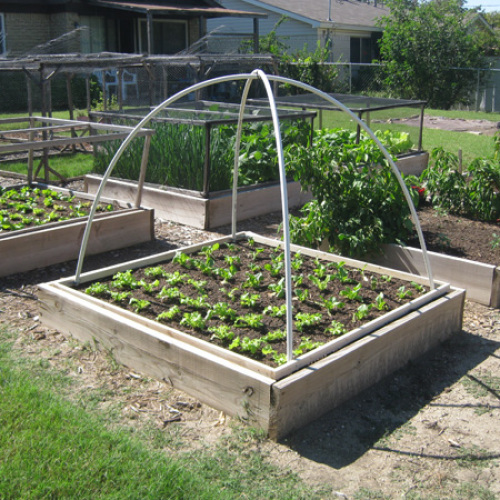
Philadelphia has a wonderful climate that makes gardening easy. The city's Zone 7 is the United States Department of Agriculture. There is a long growing year. The first frost usually falls in October. The final frost comes a week later. Despite the city's cold winters and 41 inches of rainfall, summers are mild. No matter if you're an experienced gardener or a beginner, there are many tips you can use to make sure your garden is a success.
The first rule of gardening in Philadelphia is to know when to plant certain plants. You should plant warm-weather veggies like zucchini, eggplant, or cucumber in spring. You can direct-sow melons, summer squash, and cucumbers in May. The last three are important, because they can take up a lot of space in an urban garden. Plan ahead. There are always ways to grow vegetables in the city.

A Philadelphia garden can be challenging to manage, especially if it has flowerbeds. On flowerbeds, it can be challenging in the summer and autumn. But don't worry - the city's many parks and community gardens are full of horticulture enthusiasts. Some of them host workshops, tours, and food grown in their community gardens. There are plenty of ways to get started with gardening in Philadelphia.
It is possible to get involved in gardening in Philadelphia by joining a community garden, or even attending a garden festival. Garden Club of Philadelphia offers great resources for starting your garden. If you don’t have a space to grow your garden, there are two options: join a community gardening club or start your own community garden. There are many benefits to having your own garden. You can learn more about the area's local horticulture associations and join a local chapter.
In Philadelphia, you can grow fruits and vegetables that are good for the area. You can start growing lettuce and radicchio now. You can add great fruits and veggies to your garden, even though some vegetables are too young for urban areas, such as figs. These plants are easy but not hardy. You can also grow Asian pears if you aren't sure where to start.

Philadelphia is a great location to plant. There are many parks to explore. There are many places to explore in the city. You can also get inspired by the gardens. Some of the city's parks can be used as inspiration for new gardeners. You can also get help from the Garden Club of Philadelphia for your gardening needs. There are plenty of great places in the region to learn how to grow vegetables and fruits.
FAQ
What is your favorite vegetable garden layout?
It all depends on where you live. If you live in the city, you should plant vegetables together for easy harvesting. However, if you live in a rural area, you should space out your plants for maximum yield.
Can I grow fruit trees in pots?
Yes! If you have limited space, fruit trees can be grown indoors. Your pot should have drainage holes to ensure that the tree doesn't get rotted by excess moisture. The pot should be deep enough to hold the rootball. This will help prevent stress on the tree.
How many hours of daylight does a plant really need?
It all depends on what kind of plant you have. Some plants need 12 hours per day of direct sunlight. Others prefer 8 hours of indirect sunlight. Most vegetables need at least 10 hours of direct sunlight per 24-hour time period.
When to plant flowers
Planting flowers in spring is easier when the temperature is lower and the soil remains moist. If you live somewhere cold, planting flowers should be done before the first frost. The ideal temperature for indoor plants is around 60 degrees Fahrenheit.
How can I find out what type of soil my house has?
You can tell by looking at the color of the dirt. You will find more organic matter in darker soils that those of lighter colors. Soil testing is another option. These tests measure the number of nutrients present in the soil.
Statistics
- As the price of fruit and vegetables is expected to rise by 8% after Brexit, the idea of growing your own is now better than ever. (countryliving.com)
- According to a survey from the National Gardening Association, upward of 18 million novice gardeners have picked up a shovel since 2020. (wsj.com)
- According to the National Gardening Association, the average family with a garden spends $70 on their crops—but they grow an estimated $600 worth of veggies! - blog.nationwide.com
- 80% of residents spent a lifetime as large-scale farmers (or working on farms) using many chemicals believed to be cancerous today. (acountrygirlslife.com)
External Links
How To
How to Grow Tomatoes
Tomatoes is one of the most loved vegetables today. They are easy and provide many benefits.
Tomatoes require full sun and rich soil.
Temperatures of 60 degrees Fahrenheit are the best for tomato plants
Tomatoes need plenty of air circulation. Use trellises and cages to increase airflow.
Tomatoes need regular irrigation. Use drip irrigation if possible.
Tomatoes hate hot weather. Keep the soil at 80°F.
The nitrogen-rich fertilizer helps tomato plants thrive. Every two weeks, use 10 pounds of 15-15-10 fertilizer.
Tomatoes need approximately 1 inch water per week. You can apply this directly to the foliage or through a drip system.
Tomatoes can be affected by diseases like blossom end rot or bacterial wilt. These problems can be prevented by properly draining the soil and using fungicides.
Tomatoes are susceptible to pests such as aphids and whiteflies. Spray insecticidal detergent on the undersides.
Tomatoes can be used in many ways. Make tomato sauce, salsas, ketchups, relishes, pickles, among other things.
Growing your own tomatoes is a rewarding experience.